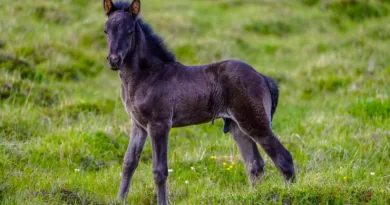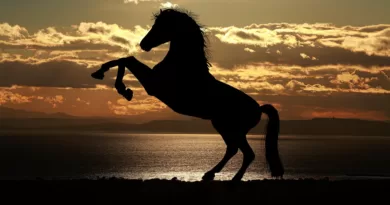How Much Water Does a Horse Drink a Day
The Vital Importance of Hydration for Horses
Proper hydration is crucial for the overall health and well-being of horses. Water is essential for various physiological functions, such as digestion, temperature regulation, and nutrient transport. As horses are primarily herbivores, their digestive system heavily relies on sufficient water intake to break down and absorb nutrients efficiently. Without adequate hydration, horses may experience digestive issues, including impaction colic and reduced feed utilization.
In addition to digestion, hydration plays a vital role in maintaining a horse’s body temperature. Horses have a limited ability to sweat, which is their main mechanism of thermoregulation. During exercise or hot weather conditions, horses rely on evaporation of sweat to cool themselves down. If a horse is dehydrated, their sweating capacity decreases, putting them at risk of heat exhaustion or heatstroke. Thus, ensuring ample water availability and intake is essential to promote optimal thermoregulation and prevent heat-related complications in horses.
Understanding the Physiology of Horses and Water Intake
Horses, like all mammals, require water to survive. Understanding their physiology and water intake is essential for ensuring their health and well-being.
Horses have a unique digestive system that plays a crucial role in their water intake. Unlike humans, who can drink and eat separately, horses obtain a significant portion of their water from their food, particularly fresh grass and hay. The process of digestion begins in the mouth, where saliva aids in breaking down the food. Horses produce copious amounts of saliva, which helps moisten the food, simplifying the swallowing process. This saliva also contributes to their overall water intake.
The stomach and small intestines continue the digestion process, extracting nutrients and electrolytes from the food. In the large intestine and cecum, where most of the water absorption occurs, horses have a highly efficient system. They can reabsorb water before it reaches the fecal matter, conserving this vital resource. However, this means that if a horse becomes dehydrated, the large intestine will work harder to extract water, resulting in drier and harder fecal matter. Understanding how a horse’s body processes water is crucial in ensuring they receive adequate hydration to prevent these issues.
Factors Affecting a Horse’s Daily Water Consumption
There are several factors that can influence a horse’s daily water consumption. One important factor is the horse’s level of activity. Horses that engage in strenuous exercise or work will naturally require more water to stay properly hydrated. Conversely, horses that have a more sedentary lifestyle may not need as much water.
Another factor to consider is the temperature and weather conditions. Hot and humid weather can increase a horse’s water needs as they sweat more to cool down their body temperature. Similarly, during cold weather, horses may consume less water due to decreased thirst. It is crucial to monitor these conditions and adjust water availability and intake accordingly.
Recognizing Dehydration in Horses: Signs and Symptoms
Dehydration is a serious concern for horses and can have detrimental effects on their overall health and well-being. It is important for horse owners and caretakers to be able to recognize the signs and symptoms of dehydration in order to take immediate action and provide the necessary treatment. One common sign of dehydration in horses is a decrease in skin elasticity. Normally, when you pinch the skin of a well-hydrated horse, it should immediately return to its original position. However, in a dehydrated horse, the skin will take longer to snap back, indicating a lack of adequate moisture in the body.
Another observable symptom of dehydration is the color and consistency of the horse’s urine. Normally, a well-hydrated horse will excrete urine that is pale yellow in color and relatively clear. However, in a dehydrated horse, the urine may appear darker in color and have a more concentrated consistency. This is due to the body’s attempt to conserve water by concentrating the urine. Additionally, dehydrated horses may show signs of lethargy, decreased appetite, and a dry or sticky mucous membrane in their mouths. These symptoms should not be ignored and proper hydration measures should be taken promptly to ensure the horse’s well-being.
Estimating the Average Daily Water Intake for Horses
In order to ensure that horses receive adequate hydration, it is important to have a general understanding of their average daily water intake. The amount of water a horse drinks can vary based on several factors, including its size, activity level, and environmental conditions.
On average, a horse will consume anywhere from 5 to 15 gallons of water per day. However, it is essential to note that this is just a rough estimation, as individual horses may have different water requirements. Some horses may drink more water in warmer weather or during periods of increased activity, while others may have a lower water intake. Additionally, factors such as age, health, and diet can also influence a horse’s water consumption. Therefore, it is crucial for horse owners and caretakers to closely monitor their horses’ water intake and make adjustments as needed to ensure they remain adequately hydrated.
Seasonal Variations in Water Consumption by Horses
During different seasons, horses may experience variations in their water consumption. These fluctuations are primarily influenced by environmental factors and changes in temperature. In hotter months, horses tend to drink more water to stay properly hydrated and regulate their body temperature. The heat causes increased sweating, which leads to higher water loss. Additionally, horses may also consume more water to cool themselves down, as water can assist in lowering their body temperature. On the other hand, during colder months, horses may reduce their water intake due to lower levels of physical activity and decreased sweating. It is essential to monitor and provide adequate access to clean and fresh water throughout the year to ensure that horses remain properly hydrated regardless of the seasonal variations in their water consumption.
In addition to temperature, the availability of water sources can also impact a horse’s water consumption during different seasons. For instance, in dry seasons or areas with limited water sources, horses may exhibit higher water intake to compensate for reduced water availability. On the contrary, during wet seasons, horses may consume less water as they have more access to natural sources like rivers, ponds, or grazing on wet grass containing higher moisture content. It is crucial to understand these seasonal variations in water consumption to effectively manage and meet the hydration needs of horses in different environments and climates. By taking into account these factors and ensuring access to clean water at all times, horse owners can promote optimal hydration and overall well-being for their equine companions.
Providing Access to Clean and Fresh Water for Horses
Horses, like all living beings, require access to clean and fresh water to maintain their well-being. It is essential to provide horses with a constant supply of water that is free from contaminants and debris. To achieve this, it is important to regularly clean and refill water troughs or buckets to ensure that the water remains fresh and appealing to the horses. Troughs and buckets should be scrubbed regularly to remove any algae or bacterial growth that may occur. Furthermore, it is crucial to ensure that there are no sources of contamination near the water supply, such as manure or chemicals, as horses are more likely to drink water if it is free from any unpleasant smells or tastes.
Tips for Encouraging Horses to Drink Sufficient Water
Encouraging horses to drink sufficient water is crucial for their overall health and well-being. Here are some helpful tips to ensure that your horse stays hydrated:
1. Monitor water temperature: Horses are more likely to drink water that is cooler in temperature. During hot summer months, ensure that the water trough or bucket is placed in a shaded area or consider adding ice cubes to keep the water cool and refreshing.
2. Clean water containers regularly: Horses are sensitive to the taste and smell of water. Keeping their water containers clean and free from algae, dirt, or debris is essential to encourage them to drink. Regularly scrub and rinse water buckets or troughs to maintain water quality and reduce any potential aversion to drinking.
Potential Health Issues Related to Inadequate Water Intake in Horses
Inadequate water intake can have serious consequences for the health and well-being of horses. One potential health issue that can arise from insufficient hydration is colic. Colic is a general term referring to abdominal pain in horses, which can manifest in various forms. When horses do not receive enough water, their digestive system can become compromised, leading to impactions or blockages. This can cause severe discomfort and even life-threatening complications if not promptly addressed.
Another health concern linked to inadequate water intake is the increased risk of kidney problems. Horses rely on water to flush out toxins and maintain proper kidney function. When they don’t drink enough, the accumulation of waste products and other substances in the kidneys can lead to the development of kidney stones or other related conditions. These issues can cause significant pain, difficulty urinating, and potential long-term damage to the kidneys if left unattended. Thus, ensuring horses have access to an adequate and clean water supply is crucial for their overall health and avoiding potentially serious health complications.
Best Practices for Monitoring and Ensuring Proper Hydration in Horses
To ensure proper hydration in horses, it is essential to have a reliable monitoring system in place. Regularly assessing a horse’s water intake throughout the day is crucial. This can be done by measuring the volume of water in their water buckets or troughs at specific intervals. Keeping a record of their water consumption will help identify any changes or abnormalities, allowing for early intervention if necessary.
In addition to monitoring, it is important to provide horses with access to clean and fresh water at all times. Water sources should be checked regularly to ensure they are free from contaminants and debris. Regular cleaning of water buckets, troughs, and automatic waterers is also necessary to maintain hygiene. Additionally, during hot weather or intense physical activity, it may be beneficial to offer water that has been chilled or to utilize misting systems to encourage horses to drink more water.
How important is hydration for horses?
Hydration is vital for horses as it plays a crucial role in maintaining their overall health and well-being. Proper hydration is necessary for digestion, temperature regulation, and nutrient absorption in horses.
What factors can affect a horse’s daily water consumption?
Several factors can influence a horse’s daily water consumption, including temperature, humidity, exercise level, diet, health condition, and access to water sources.
How can I recognize dehydration in horses?
Signs of dehydration in horses may include sunken eyes, dry or tacky gums, loss of skin elasticity, decreased urination, dark-colored urine, lethargy, and increased heart rate.
How can I estimate my horse’s average daily water intake?
On average, a horse will consume between 5 to 10 gallons of water per day. However, factors such as weight, size, climate, and activity level can affect this estimation. Monitoring water intake is important to determine your horse’s specific needs.
Do horses’ water consumption vary according to the seasons?
Yes, horses tend to drink more water during hot and humid weather to regulate their body temperature. In colder seasons, their water intake may decrease, but it is still important to ensure they have access to clean and fresh water at all times.
How can I provide clean and fresh water for my horse?
To provide clean and fresh water for your horse, regularly clean and disinfect water troughs or buckets. Ensure the water source is free from contaminants and algae. Automatic waterers can also be beneficial in maintaining water cleanliness.
Are there any tips for encouraging horses to drink more water?
Yes, some tips include adding electrolytes to their water, wetting their feed, providing salt blocks, ensuring water is at a suitable temperature, and offering water after exercise or before feeding.
What are the potential health issues related to inadequate water intake in horses?
Inadequate water intake can lead to several health issues in horses, including impaction colic, urinary stones, reduced feed intake, decreased performance, heat stress, and overall compromised health.
What are the best practices for monitoring and ensuring proper hydration in horses?
Best practices include regularly monitoring water intake, ensuring access to clean and fresh water at all times, promoting gradual changes in water sources, providing salt and electrolytes, and consulting with a veterinarian for specific hydration needs.




